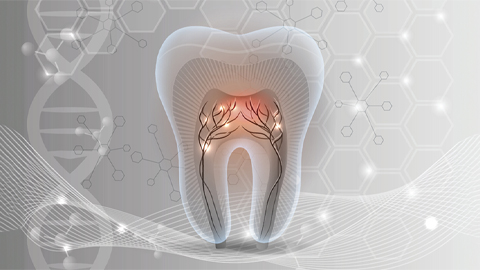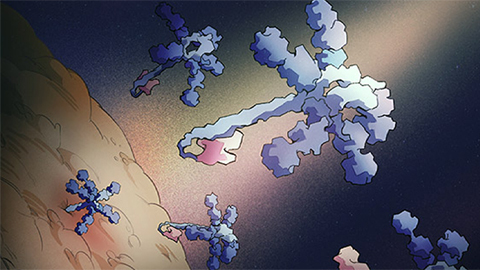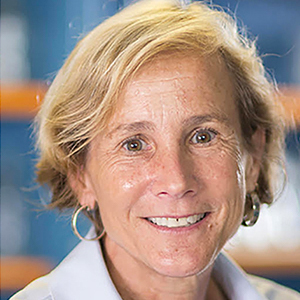
The era of “smart” organelles
Organelles are the fundamental units of cellular organization, and our understanding of their roles in cell physiology has evolved dramatically since they first were described in the early 20th century. Though organelles originally were thought of as simple compartments for biochemical reactions and confined to eukaryotes, new studies have revealed “smart” roles for them in fine-tuning metabolism as well as serving as platforms coordinating signaling and quality-control pathways in both bacteria and eukaryotes.
Recent work illuminates the organizational principles governing how organelles cleverly coordinate cell quality control. These reveal how organelles create microenvironments for metabolic pathways, how they facilitate interorganelle communication to sense and respond to specific cues, and how the phase properties of lipids and proteins equip organelles to protect cells from stress and maintain organismal homeostasis.
Our symposia at the American Society for Biochemistry and Molecular Biology’s annual meeting, Discover BMB, in Seattle in March illustrate these themes and feature work in an array of fields, including prokaryotic and eukaryotic cell biology, cancer biology, and phase separation biophysics.
Just like in the song “Whatever It Takes” by Imagine Dragons, organelles are equipped to do whatever is necessary for cells to adapt and survive the ever-present challenges of life.
Keywords: Bacterial microcompartments, interorganelle communication, protein and lipid phase separation, mitochondrial metabolism.
Who should attend: Anyone interested in learning how organelles are constructed, organized and responsive to signals. Also people interested in the phase properties of proteins and lipids in organelle biology.
Theme song: “Whatever It Takes” by Imagine Dragons.
The session is powered by lipids, proteins and cellular stress.
Speakers
Bacterial organelles
Luning Lu, University of Liverpool
Danielle Tullman–Ercek, Northwestern University
Cheryl Kerfeld (chair), Michigan State University
Arash Komelli, University of California, Berkeley
Phase separation in organelle structure and function
W. Mike Henne (chair), University of Texas Southwestern Medical Center at Dallas
David Savage, University of California, Berkeley/Howard Hughes Medical Institute
Martin Jonikas, Princeton University
Alex Merz, University of Washington School of Medicine
Inter-organelle communication
Rushika Perera (chair), University of California, San Francisco
Karin Reinisch, Yale University
Laura Lackner, Northwestern University
Sarah Cohen, University of North Carolina at Chapel Hill
The complete list
Learn about all 11 symposia planned for Discover BMB 2023:- Protein Machines and Disorder
- Regulation of RNA
- Organelles, Mechanisms and Phase Properties of Cellular Quality Control
- Lipid Dynamics and Signals in Membrane and Protein Structure
- Frontiers in Carbohydrate Synthesis and Recognition
- Bias In, Bias Out in Data Science
- Cell Signaling — New Tools and Emerging Concepts
- Education and Professional Development
- Biochemistry of Elemental Cycling
- Advances in Organismal and Cellular Metabolism
- Artificial Intelligence and Machine Learning in Structural Biology, Drug Design and Systems Biology
Enjoy reading ASBMB Today?
Become a member to receive the print edition monthly and the digital edition weekly.
Learn moreGet the latest from ASBMB Today
Enter your email address, and we’ll send you a weekly email with recent articles, interviews and more.
Latest in Science
Science highlights or most popular articles

From the journals: JLR
A “T” makes a difference in blood clotting. High cholesterol: two screens are better than one. Biomarkers for cardiovascular risk. Statin-induced changes to the HDL lipidome. Read about recent papers on these topics.

Decoding microglial language
Emory University scientists characterize extracellular vesicles that facilitate intercellular communication.

What is metabolism?
A biochemist explains how different people convert energy differently – and why that matters for your health.

What’s next in the Ozempic era?
Diabetes, weight loss and now heart health: A new family of drugs is changing the way scientists are thinking about obesity — and more uses are on the horizon.

How a gene spurs tooth development
University of Iowa researchers find a clue in a rare genetic disorder’s missing chromosome.

New class of antimicrobials discovered in soil bacteria
Scientists have mined Streptomyces for antibiotics for nearly a century, but the newly identified umbrella toxin escaped notice.


